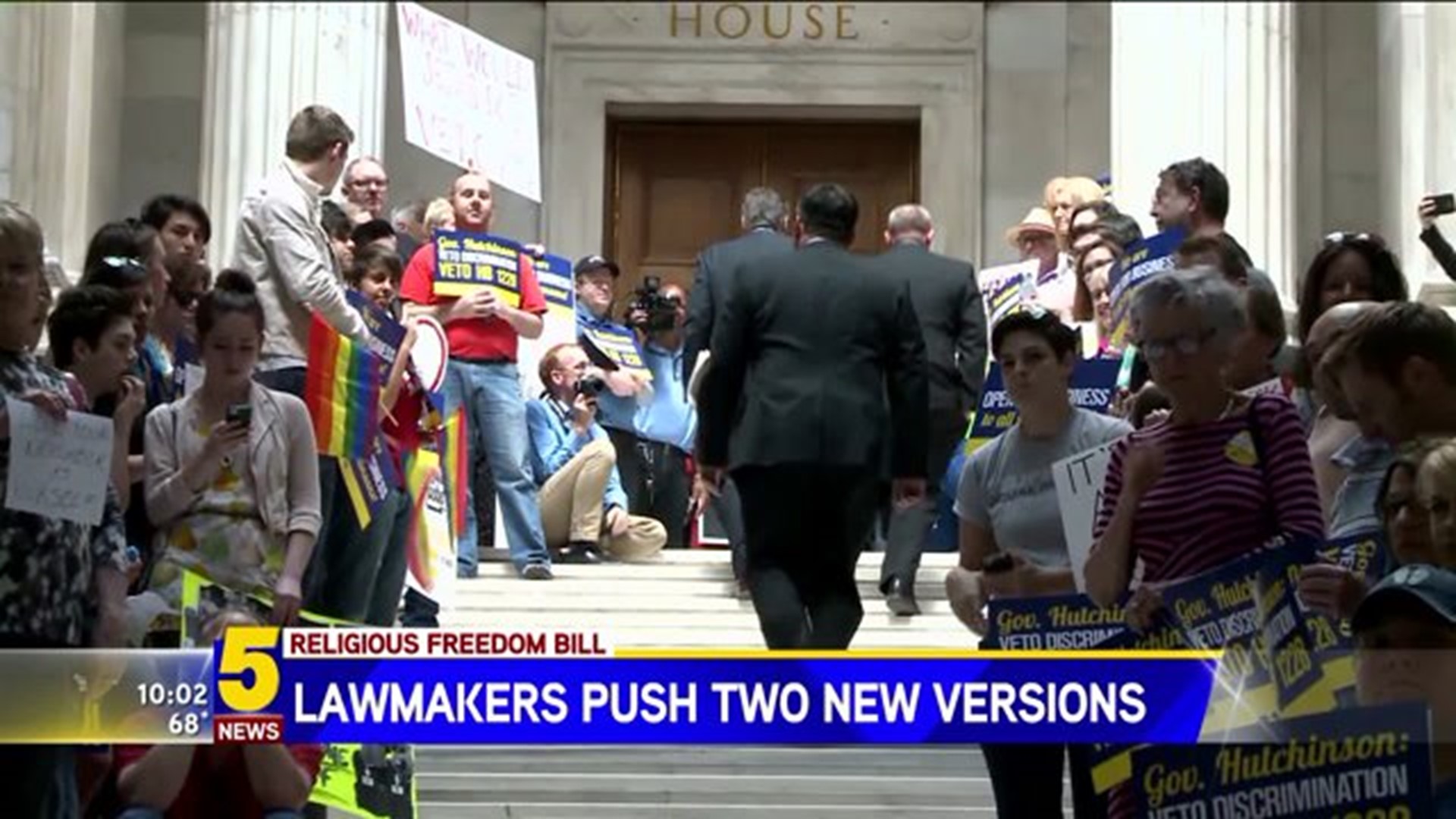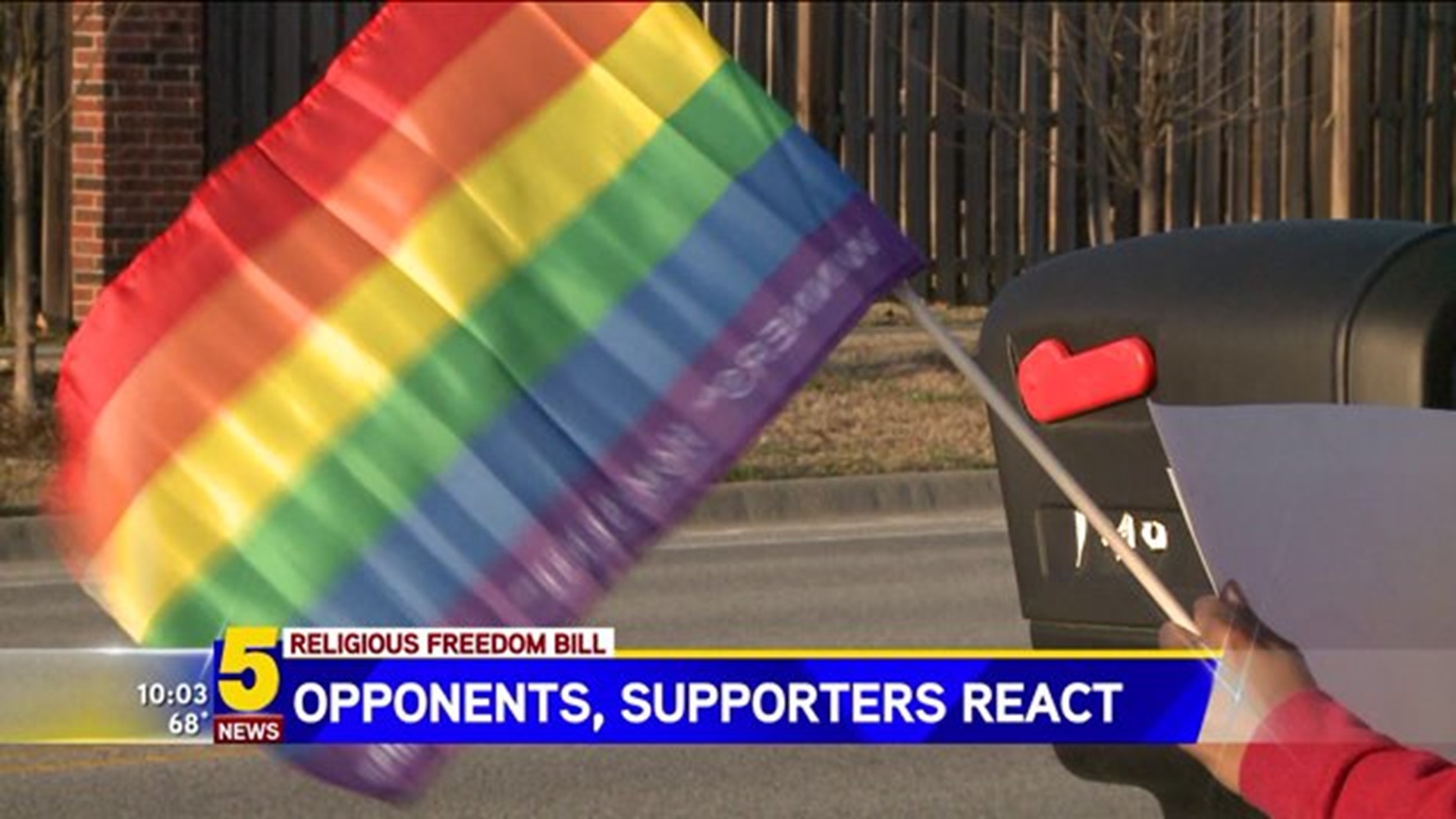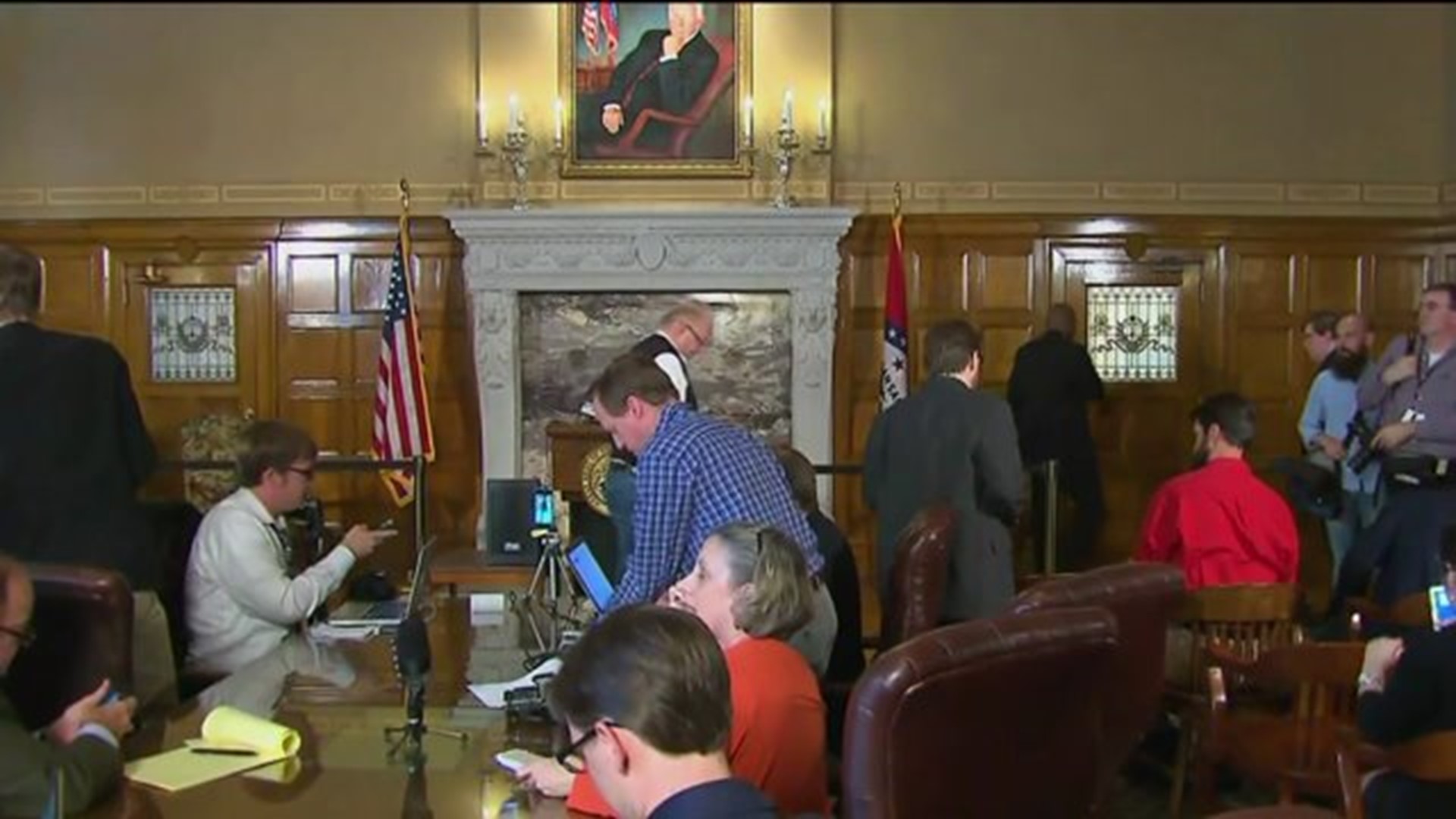LITTLE ROCK (KFSM) - Two amended versions of the Religious Freedom Restoration Act, formerly known as HB 1228, passed the Senate on Wednesday evening (April 1), according to legislators.
Earlier in the day, Gov. Asa Hutchinson asked that the Religious Freedom Restoration Act be changed to more closely mirror a federal version of the RFRA that was signed by then-President Bill Clinton in 1993. The governor asked legislators to recall the bill and change its language.
"We wanted to have it crafted similar to what is at the federal level," Hutchinson said during a media conference Wednesday afternoon. "To do that though, changes need to be made."
The full media conference has been included at the bottom of this article.
The new bills are called SB 229, which passed on a 26 to six vote, and SB 975, which passed on a 26 to zero vote, according to legislators. Both of the bills contain the same language, but have different titles. Lawmakers hope Hutchinson will sign one of them.
One of the issues the governor's office had with HB 1228 is that it defined a person as "an individual, association, partnership, corporation, church, religious institution, estate, trust, foundation, or other legal entity." That language has been removed from SB 229 and SB 975.
Rep. Bob Ballinger, R-Hindsville, who authored HB 1228, said the governor's decision to send the bill back to legislators wasn't unexpected.
"We had had conversations so, no, I wasn't surprised," he said.
Ballinger also said that he understands why the governor didn't sign the original bill.
"What we've got to do is we've got to step back and make sure people realize what this bill is and what this bill does," he said. "So we're going to try to come back and rework it so that people can be sure."
During the conference, Hutchinson said the possible economic impacts to the state also played a role in his decision. Tuesday evening, after the House and Senate passed HB 1228, retail-giant Walmart issued a statement requesting that the governor veto the bill.
"We have to, as a state, look for means to communicate that we recognize the diversity of our workforce," the governor said. "We are an international community in terms of housing the headquarters of international business here in this state and we want to be able to compete in that market."
Hutchinson also said his son, Seth, signed a petition asking the governor to veto HB 1228.
The other issue the governor's office cited regarding HB 1228 is that the federal version of RFRA had already been tested by the courts, whereas HB 1228 would have to go through that process.
The revised versions of the RFRA will go to a House Committee then to the full House for a vote Thursday. The Arkansas House of Representatives will convene at 1 p.m. Legislators said SB 229 or SB 975 is expected to pass.
Sen. Bart Hester, R-Cave Springs, believes legislators are on the right track with the revised bills.
"We have worked very hard with the governor," he said. "The Senate and House have come together and came up with amendments that we can all agree on."
Hester said the revised bill will still strengthen religious protections in Arkansas.
"It still fulfills what we were hoping for, which is protection of the First Amendment and protection for individuals in Arkansas to hold our religious beliefs close," Hester said.
HB1228 divided the state and eventually the country. Supporters of the bill said it was meant to protect religious liberty from unnecessary government interference, but opponents said the bill was a gateway for discrimination against the lesbian, gay, bisexual, and transgender community.
Danielle Weatherby is an assistant professor of law at the University of Arkansas.
"The concern is that if a really broad religious freedom law, like [HB] 1228, is passed, it will eventually sanction discrimination under the guidelines of religious freedom," Weatherby said.
Weatherby said the Arkansas legislature is making progress by trying to find middle ground by revising the bill.
"For those that were concerned that [HB 1228] was overreaching and overly broad this is a good thing," she said. "Hopefully the legislature can reach a compromise that really strikes an appropriate balance between religious freedom and making sure that we don't trample on civil liberties."
Weatherby did point out that there is an emergency clause included at the end of HB 1228, which states that the bill will still become law if the governor doesn't veto it within five days.



